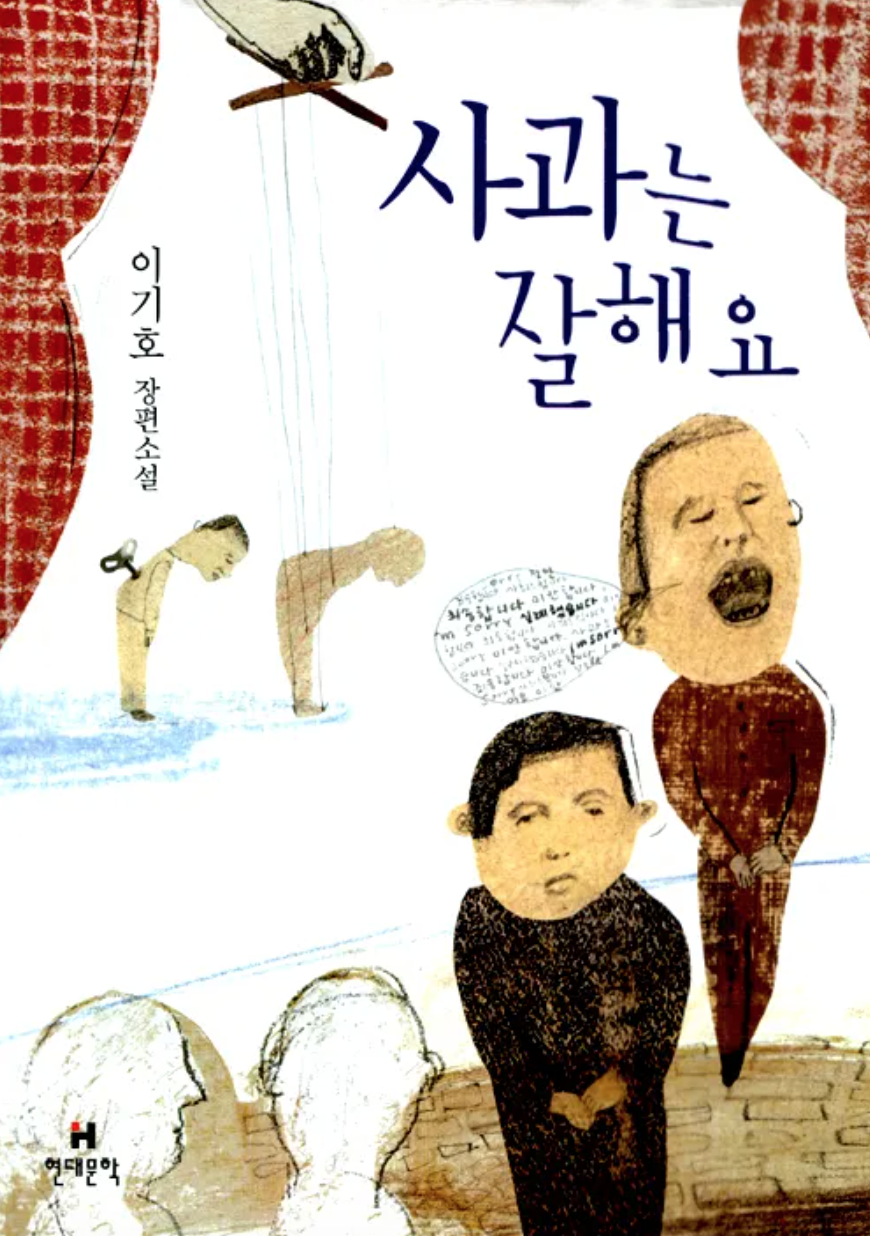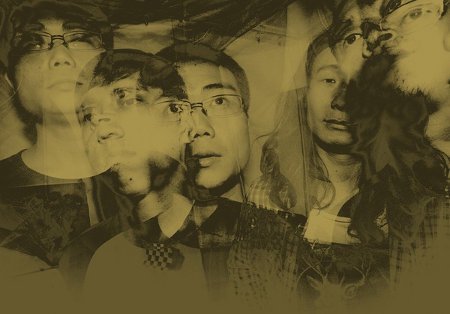The mystical punk fashion of Vivienne Westwood and NANA's homage to its style
In this article, Anja Gogo and Bethan Beddow examine the influence and significance of Vivienne Westwood’s iconic style in the manga ‘Nana’, reflecting on the relationship between the two protagonists through the medium of fashion.
A Gyopo Reads East III - ‘At Least We Can Apologize’ (II)
In this thoughtful piece of analysis, columnist Injae Lee builds on the first instalment of this two-part article to further delve into the themes of guilt and responsibility central to ‘At Least We Can Apologize’, and in doing so, reflects on their place within the heart of Korean society.
A Gyopo Reads East II - Lee Ki-ho’s ‘At Least We Can Apologize’ and its Depiction of Korea as a ‘Hell Joseon’ (I)
In the first instalment of this two-part reflection on Lee Ki-Ho’s novel ‘At Least We Can Apologise’, columnist Injae Lee muses over the intricacies of translation and examines the work’s satirical critique of contemporary Korean society, invoking the concept of a ‘Hell Joson.’
The Enduring Bitterness of Peppermint Candy (II): The Minefield of South-Korea’s Gender Wars
In the second instalment of her reflections on Peppermint Candy, Hannah Kang Wolter considers how we might apply the lessons of Lee Chang Dong’s film to the fraught landscape of South Korea’s gender politics.
The Symbolic Multilayers of Japanese Obento
Reflecting on the treatment of food and obento in the films of Studio Ghibli, Anja Gogo explores the significance the Japanese packed lunch in a wider social context, delving beyond its surface function as a vehicle of nutrition.
The Beginner’s Guide to City Pop: A Timely!! Genre
In this article, Romano Tucci looks at the birth and rise in popularity of city pop, a genre and audio-aesthetic that grew out of 1970s Japan, and shares with readers a few unmissable tracks to add to any city pop playlist.
The Many Legacies of the First Emperor (II)
In the second instalment of his article, Sam reflects on the rehabilitation and reassessments of the First Emperor in the 20th century, spearheaded by Mao Zedong and continuing on after his death into late 1990s cinema.
The Audioscapes of the Contemporary Chinese-Speaking World III - Sunset at West Lake (西湖)
In the third instalment of her column, Ella Eagle Davis focuses in on Chinese indie band Miserable Faith, reflecting on the transcendent and transportive quality of their song ‘West Lake.’
The Many Legacies of the First Emperor (I)
In this two-part article, Sam Meston explores the reasons behind the recent historiographical reevaluations of China’s First Emperor, Qin Shi Huang, beginning with a deep-dive into how he earned his title.
The Scandalous Non-Existence of Xue Mili
In this article, staff writer Tabitha Rubens delves into the explosive phenomenon of the “Xue Mili” novels that appeared in China in the late 1980s, and examines how this scandal was reflective of the shifts in the landscape of contemporary Chinese literature.
The Audioscapes of the Contemporary Chinese-Speaking World II - Who Will the Wind Blow Next?
In the second instalment of her column, Ella Eagle Davies explores the emotional significance of setting in memory through the lens of Taiwanese indie-rock band No Party for Cao Dong, in particular their song “Simon Says”.
A Gyopo Reads East I - Pachinko and the Double-Orientalism of Korean Existence
In his first column, Injae Lee lays out his thoughts upon reading Pachinko, the novel by Korean-American author Min Jin Lee. He relates the novel to his own studies in Orientalism at university and the way Orientalism continues to influence perceptions of Korean culture, exposing a darker side to the Hallyu that is exposing the world to Korean culture—and Korean culture to the world.
The Enduring Bitterness of Peppermint Candy (I)
In this two-part article, Hannah Kang Wolter reviews Lee Chang Dong’s Peppermint Candy (2000), a masterful tale of disillusionment and loss of innocence told in reverse chronology.
The Audioscapes of the Contemporary Chinese-Speaking World I - The Mountain Tit (山雀) of Hebei
In this first instalment of her column, Ella Eagle Davies focuses in on the bluesy notes of environmental rock from Hebei province, China, and what they reveal about a landscape under siege.
A Picture of Paper
In this article, Tabitha Rubens considers Zhang Xu Zhan’s 2022 solo exhibition, Jungle Jungle, and the tussle between tradition and modernity in Taiwan's contemporary art scene.
On the Importance of Teaching Mandarin
In this highly relevant article, Joe Rowan discusses the importance of learning Mandarin in post-Brexit Britain, with a key focus on why learning the language is key to the future of Sino-British relations.
The ‘Righteous Thief’ Liao Tianding, and How His Legacy is Shaping a New Generation of Taiwanese Resistance
East Asia columnist Liam Elliott Brady, currently on his year abroad in Taiwan, looks at the development of the Taiwanese legend Liao Tianding (1883-1909). From his death at the hands of Taiwan’s Japanese occupiers in 1909 to his deification in online gaming, Liao Tianding remains a potent symbol of Taiwanese independence. As popular discontent with the current Taiwanese president’s ‘soft China policy’ grows, the revival of Liao Tianding reflects a hallmark Taiwanese culture: the turn to folklore as a source of hope in an era defined by unprecedented uncertainty.
Egg Tarts (ft. the British Empire) [Cantonese Remix]
The egg tart is one of Hong Kong’s cultural trademarks, and a staple of Cantonese local cuisine. However, this sweet treat is not wholly unique to the city, and has its origins halfway across the world. Stephanie Jat delves into the history of the dish that marked her childhood, and details the remarkable journey which brought egg tarts to the table of the masses in Hong Kong.
Railway Guerrilla Stories Retold in China
Remake after remake concerning the role played by China’s northwestern guerrilla fighters during the Second Sino-Japanese War (1937-45) show a cinematic tradition that is still going strong in the 70 years since its inception: in this article, Staff Writer Bingbing Shi reviews Railway Heroes (2021), a remake of Zhao Ming’s 1956 classic, Railway Guerrilla, as well as the evolution of the Chinese ‘resistance genre’ as a whole.
Blank Scrolls: Emptiness in East Asian Art & Philosophy
Staff Writer for East Asia, Hannah Kang Wolter, explores the technique of negative space in Chinese art and the corresponding notion of emptiness in East Asian philosophy. Her medium for doing so - a comparison of the 2008 blockbuster film, Kung Fu Panda, and Huang Gongwang’s traditional Chinese landscape paintings from the 14th century.

















![Egg Tarts (ft. the British Empire) [Cantonese Remix]](https://images.squarespace-cdn.com/content/v1/5f0d8984a97fa66e78f52bb7/1649324106552-QYX5DXMZC71G6VUPRWNX/49-494824_drawing-of-the-dim-sum-style-egg-tart.png)

